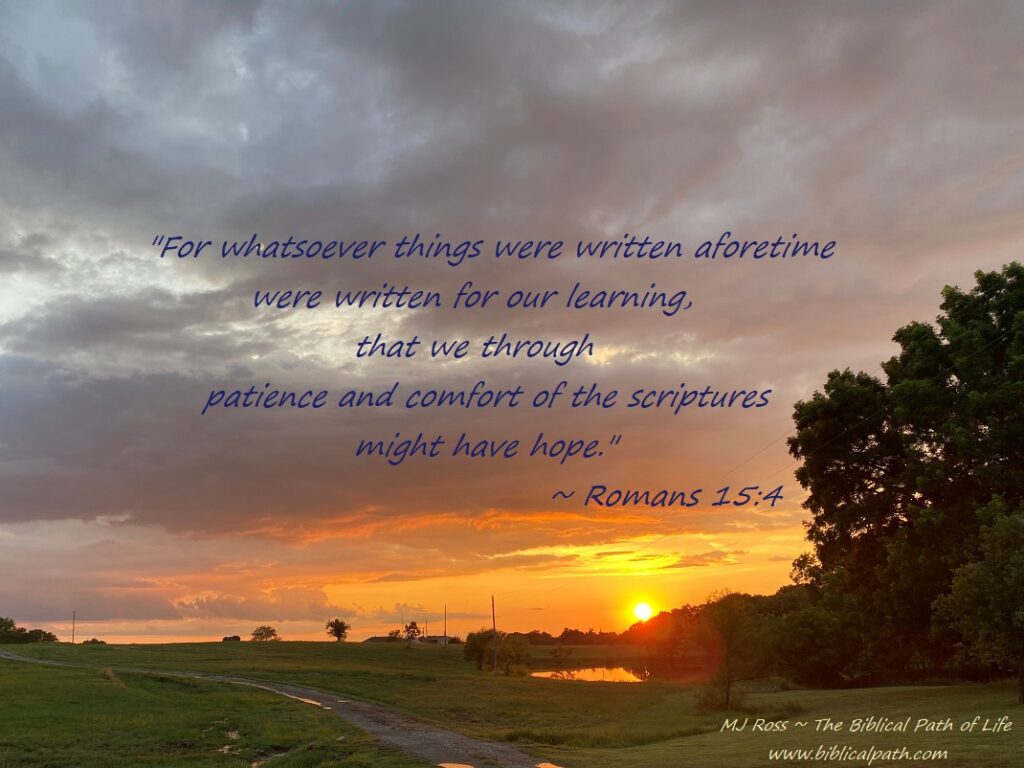
Deuteronomy 4:29
Not many people today were born into a Christian family. What does this mean? Most often, they do not understand or know God. How can one find God? How can one know God?
In the life of King Hezekiah, we can read of a hope for someone whose family does not know of God or the things of God. King Hezekiah was the son of a terrible king of Judah, King Ahaz. King Ahaz had not only forsaken God, but he also worshiped idols – even sacrificing some of his sons to the false god Molech. Still through all of that, Hezekiah came to know God, and he pleased God in all that he did. When Hezekiah became king, he removed all of those high places where his father worshiped and even broke down all of those images the people worshiped.
How was Hezekiah able to come to know God, knowing the family into which he was born? Read the following verses: “But if from thence thou shalt seek the LORD thy God, thou shalt find him, if thou seek him with all thy heart and with all thy soul” (Deuteronomy 4:29). One has to seek God. Also read the following: “The LORD looked down from heaven upon the children of men, to see if there were any that did understand, and seek God” (Psalm 14:2). God knows when someone seeks after Him, for He is watching and waiting! Hezekiah opened the doors of the house of the Lord at the beginning of his reign (see 2 Chronicles 29:2). That was the place to begin. He then followed God’s Word.
According to the following verses, we can understand that King Hezekiah took the time to seek God’s Word so he would know what God required to reestablish the relationship that had been severed. “22. And if ye have erred, and not observed all these commandments, which the LORD hath spoken unto Moses … 24. Then it shall be, if ought be committed by ignorance without the knowledge of the congregation, that all the congregation shall offer one young bullock for a burnt offering, for a sweet savour unto the LORD, … 25. And the priest shall make an atonement for all the congregation of the children of Israel, and it shall be forgiven them; for it is ignorance: … 26. And it shall be forgiven all the congregation of the children of Israel, and the stranger that sojourneth among them; seeing all the people were in ignorance” (Numbers 15:22-26). That was what God required in the Old Testament times, while the kings ruled. It is always important to know what God requires – and it is recorded in His Word. As we read the New Testament, Jesus came to set us free from the rigorous duties of the Law. “For the law having a shadow of good things to come, and not the very image of the things, can never with those sacrifices which they offered year by year continually make the comers thereunto perfect” (Hebrews 10:1). See simply what Jesus did: “8. Above when he said, Sacrifice and offering and burnt offerings and offering for sin thou wouldest not, neither hadst pleasure therein; which are offered by the law; 9. Then said he, Lo, I come to do thy will, O God. He taketh away the first, that he may establish the second. 10. By the which will we are sanctified through the offering of the body of Jesus Christ once for all” (Hebrews 10:8-10). Jesus came to set us free from the continual sacrificial system of the Law.
Read what God did for Hezekiah for seeking Him with all of his heart. “And in every work that he began in the service of the house of God, and in the law, and in the commandments, to seek his God, he did it with all his heart, and prospered” (2 Chronicles 31:21). Because King Hezekiah sought God, doing just what God’s Word required, he not only found God, but God was honored. God then caused King Hezekiah to prosper. God was then free to bless His people openly – revealing Himself to not only Judah, but also the nations around. King Hezekiah became one of the greatest kings of Judah.
Anyone who seeks God can know God. However, what does it take to know God? “But without faith it is impossible to please him: for he that cometh to God must believe that he is, and that he is a rewarder of them that diligently seek him” (Hebrews 11:6). It takes faith. “For ye are all the children of God by faith in Christ Jesus” (Galatians 3:26). One can know God only by faith in Christ Jesus.
King Hezekiah is a great example of one who can give us hope. A hope that when God is sought, He will hear – as long as one comes to Him with a repentant heart. God can forgive anyone who will ask. “8. But what saith it? The word is nigh thee, even in thy mouth, and in thy heart: that is, the word of faith, which we preach; 9. That if thou shalt confess with thy mouth the Lord Jesus, and shalt believe in thine heart that God hath raised him from the dead, thou shalt be saved. 10. For with the heart man believeth unto righteousness; and with the mouth confession is made unto salvation … For whosoever shall call upon the name of the Lord shall be saved” (Romans 10:8-10, 13).
Have you come to know God, understanding knowledge of God only comes by faith in Jesus?



